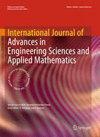基于变换和一阶统计特征的人工神经网络皮肤癌图像分类
IF 0.8
Q3 ENGINEERING, MULTIDISCIPLINARY
International Journal of Advances in Engineering Sciences and Applied Mathematics
Pub Date : 2022-09-01
DOI:10.11591/ijaas.v11.i3.pp232-241
引用次数: 0
摘要
皮肤癌是最危险的癌症之一。这种癌症的某些类型会导致死亡,因此必须通过在冲动阶段的初始检测来发现和索引癌症,以避免其扩散。本文根据使用的国际皮肤成像协作(ISIC) 2018数据集,使用人工神经网络(ANN)对不同类型的黑色素瘤进行检测和索引。预处理是将肿瘤部分从皮肤图像中剥离出来形成图像的关键环节。它包括四个阶段:可移除、裁剪、细化和归一化。此阶段已用于消除图像病变上所有不需要的毛发颗粒。利用离散余弦变换(DCT)、离散小波变换(DWT)和子带图像梯度变换将裁剪后的图像变换为频域系数,提取其特征。实现了统计特征提取,使人工神经网络训练的数据量最小化。实验分析使用的数据集ISIC 2018由7种不同类型的皮肤镜图像组成(本文仅处理4种类型)。在分类方面,采用人工神经网络进行分类,DWT、子带DCT和子带梯度变换的准确率分别为88.98%、85.44%和76.07%。本文章由计算机程序翻译,如有差异,请以英文原文为准。
Skin cancers image classification using transformation and first order statistic features with artificial neural network classifier
Skin cancer is one of the most dangerous types of cancer. Some types of this cancer lead to death, so cancer must be discovered and indexed to avoid its spread through initial detection in the impulsive stage. This paper deals with the detection and indexing of different types of melanomas using an artificial neural network (ANN) depending on the international skin imaging collaboration (ISIC) 2018 dataset that was used. The pre-processing is the most important part because it formulates an image by insolated the cancer part from the skin image. It consists of four stages, removable, cropping, thinning, and normalization. This phase has been used to eliminate all the undesirable hair particles on the image lesion. The cropped image transforms into frequency domain coefficients using discrete cosine transform (DCT), discrete wavelet transform (DWT), and gradient transform for sub-band images to extract its feature. The statistical feature extraction is implemented to minimize the size of data for ANN training. The experimental analysis used dataset ISIC 2018 consisting of seven different types of dermoscopic images (this paper deals with four types only). For classification purposes, ANN was implemented and the accuracy obtained is about 88.98% for DWT, 85.44% for sub-band DCT, and 76.07% for sub-band gradient transform.
求助全文
通过发布文献求助,成功后即可免费获取论文全文。
去求助
来源期刊

International Journal of Advances in Engineering Sciences and Applied Mathematics
ENGINEERING, MULTIDISCIPLINARY-
自引率
0.00%
发文量
6
期刊介绍:
International Journal of Advances in Engineering Sciences and Applied Mathematics will be a thematic journal, where each issue will be dedicated to a specific area of engineering and applied mathematics. The journal will accept original articles and will also publish review article that summarize the state of the art and provide a perspective on areas of current research interest.Articles that contain purely theoretical results are discouraged.
 求助内容:
求助内容: 应助结果提醒方式:
应助结果提醒方式:


